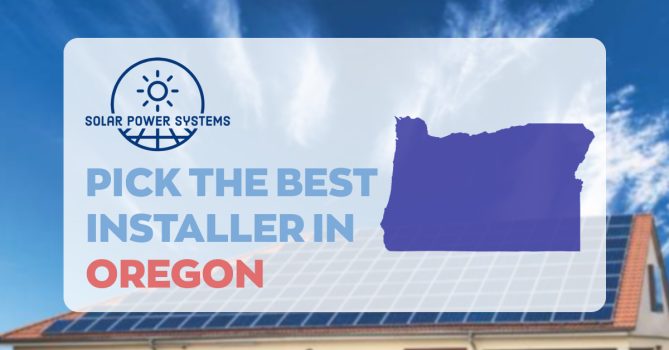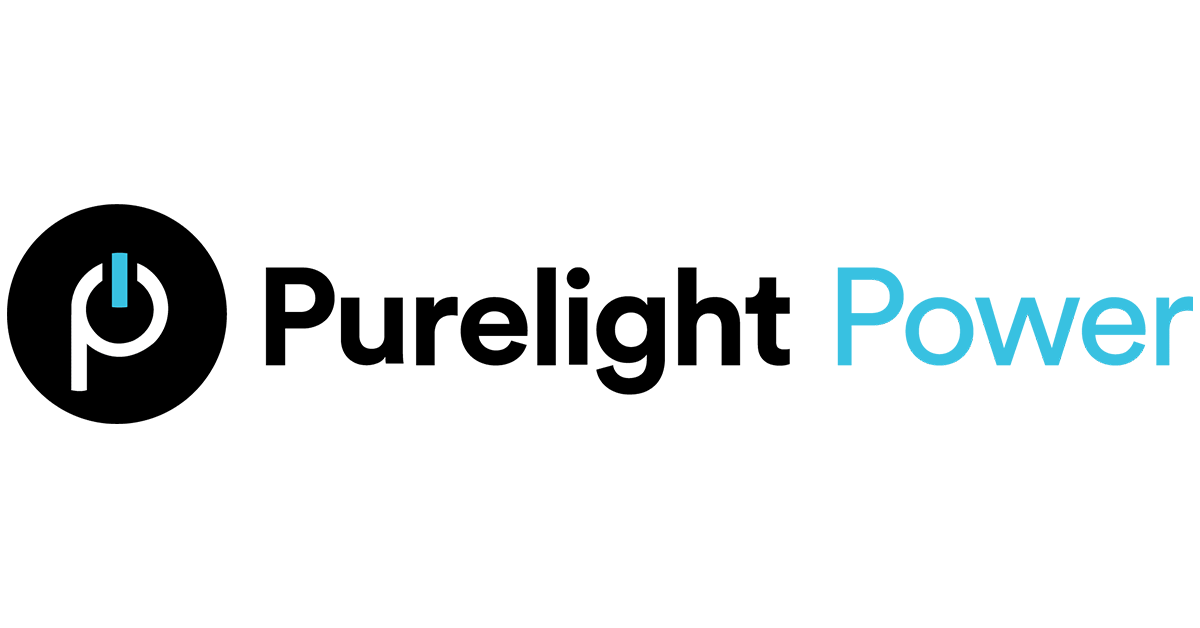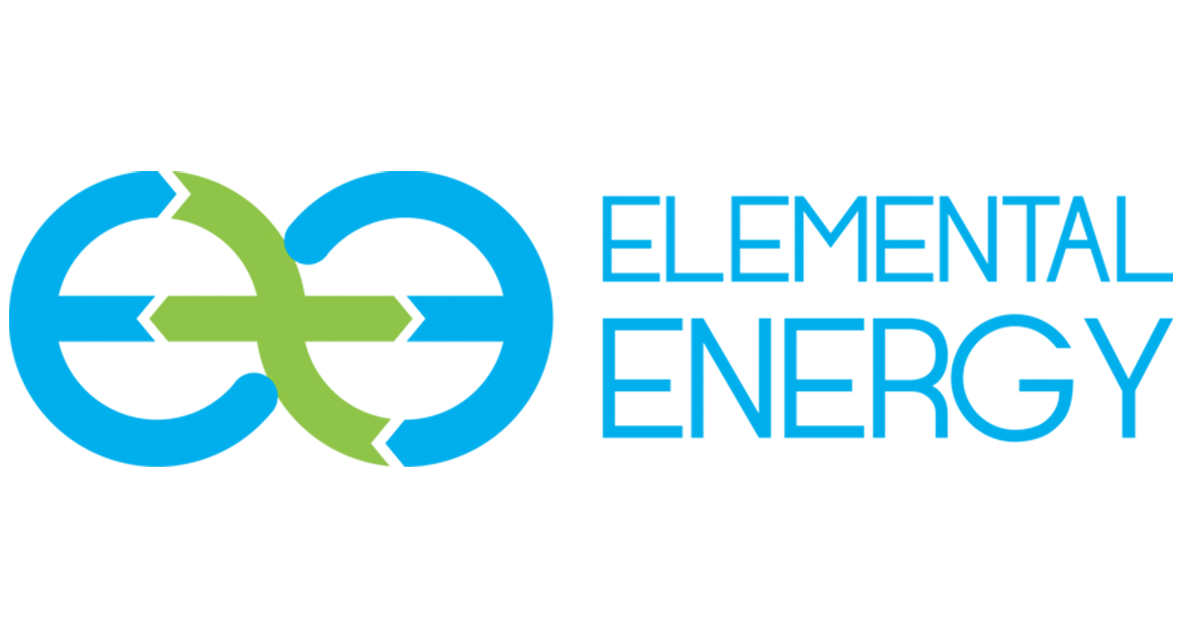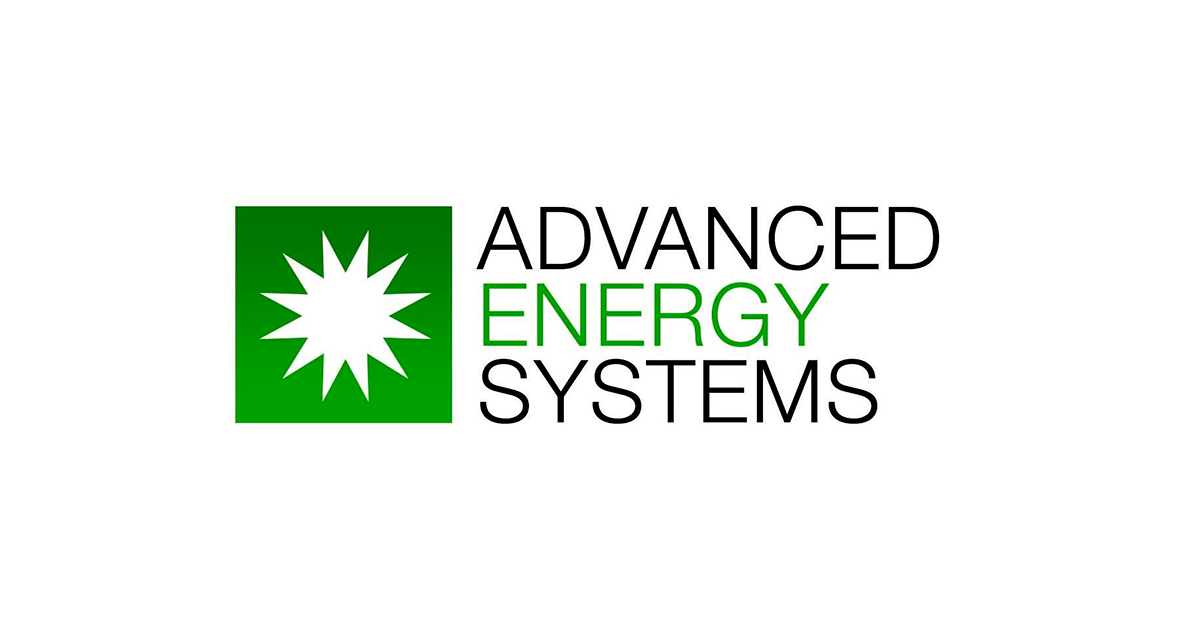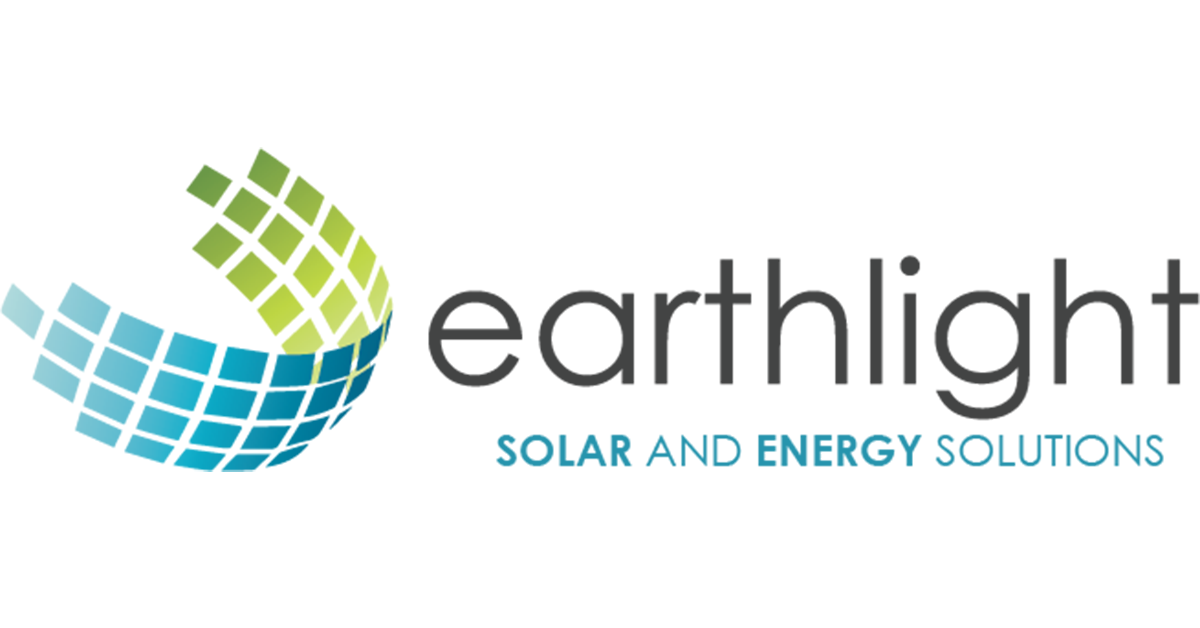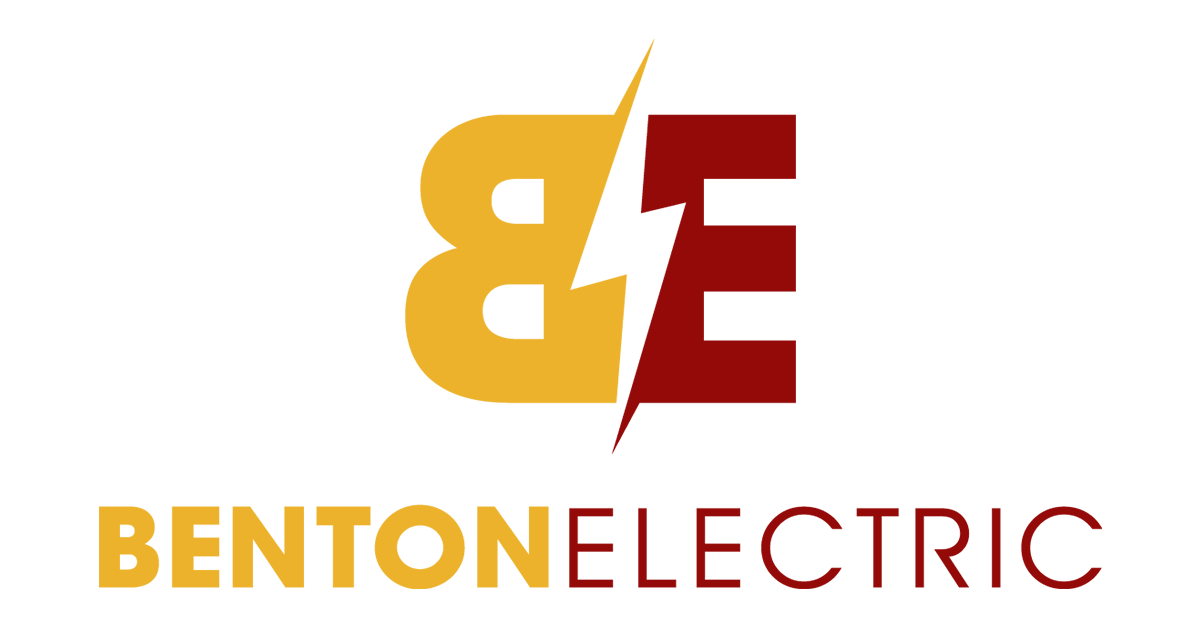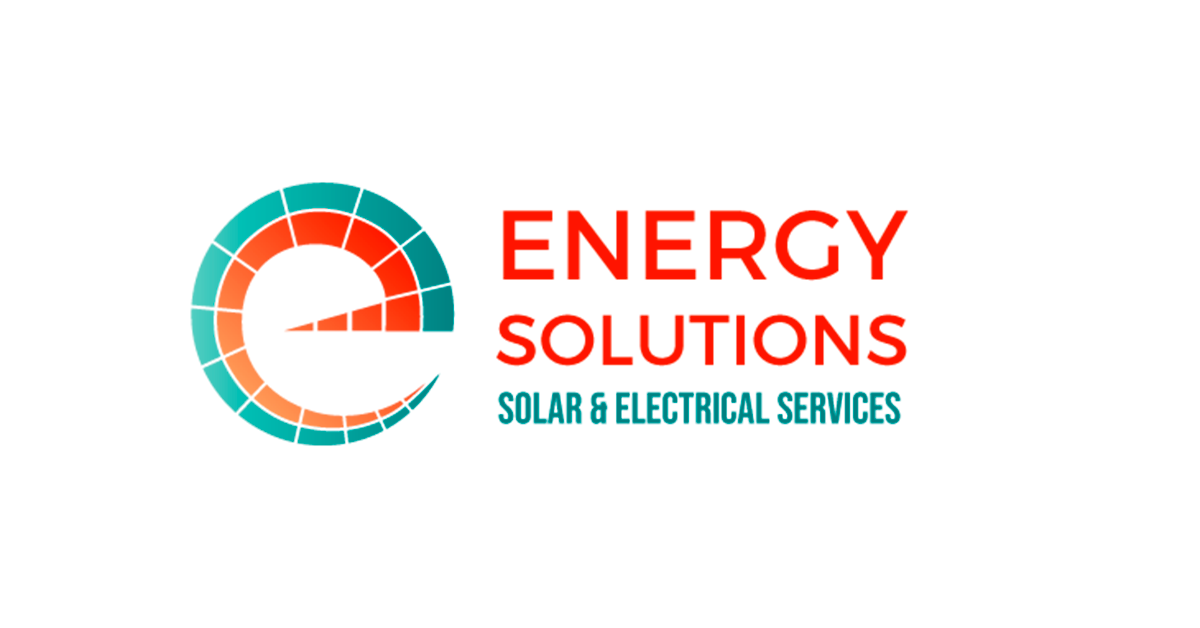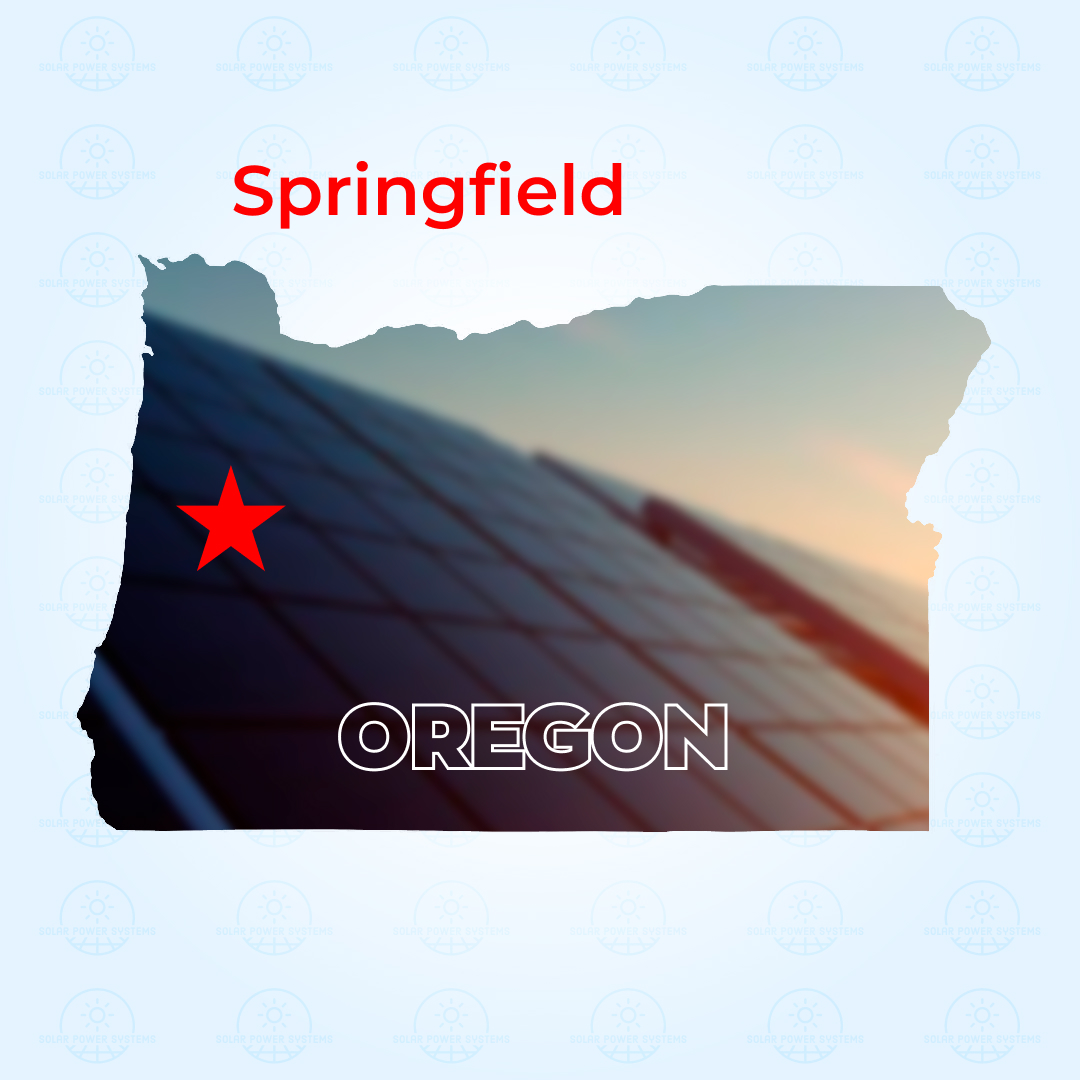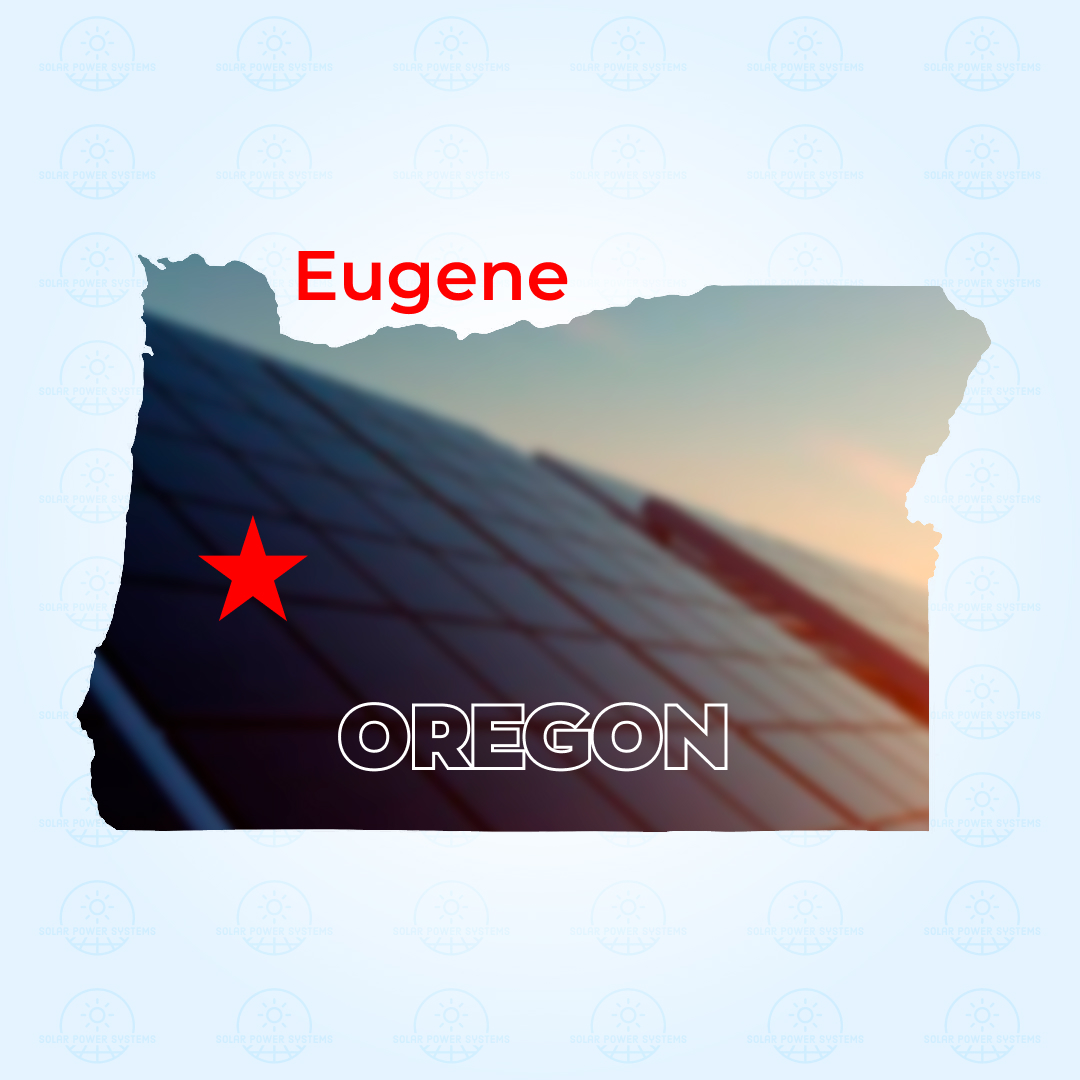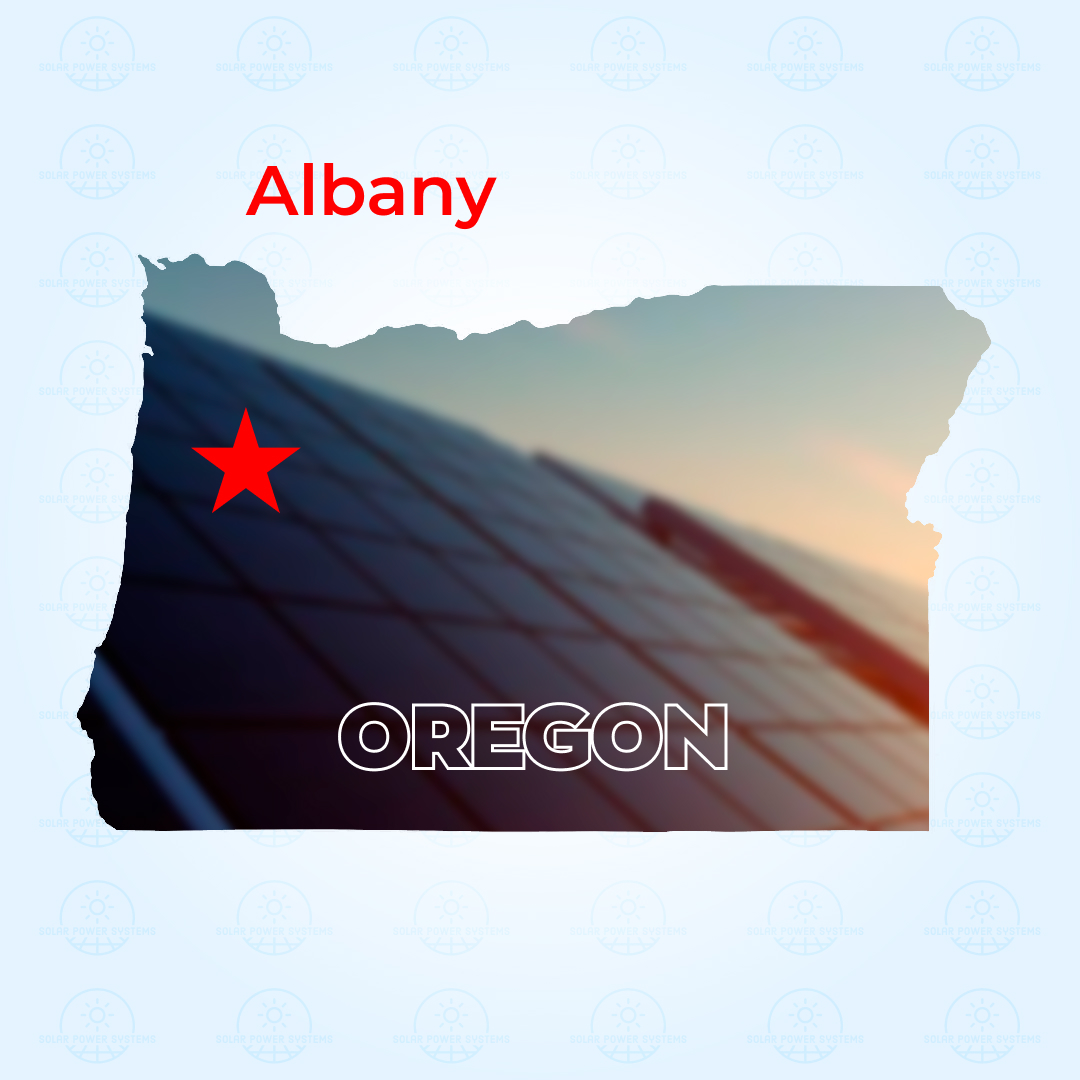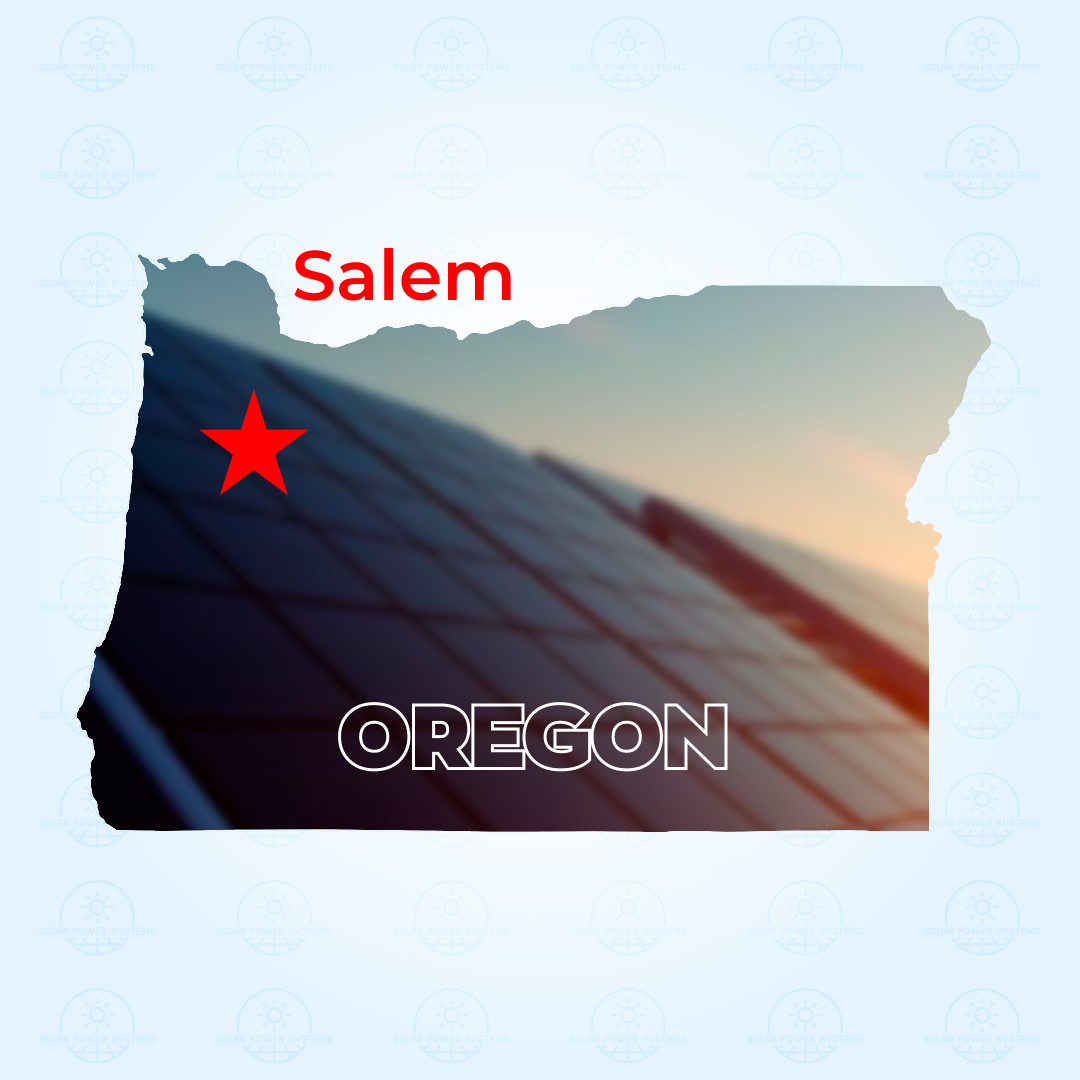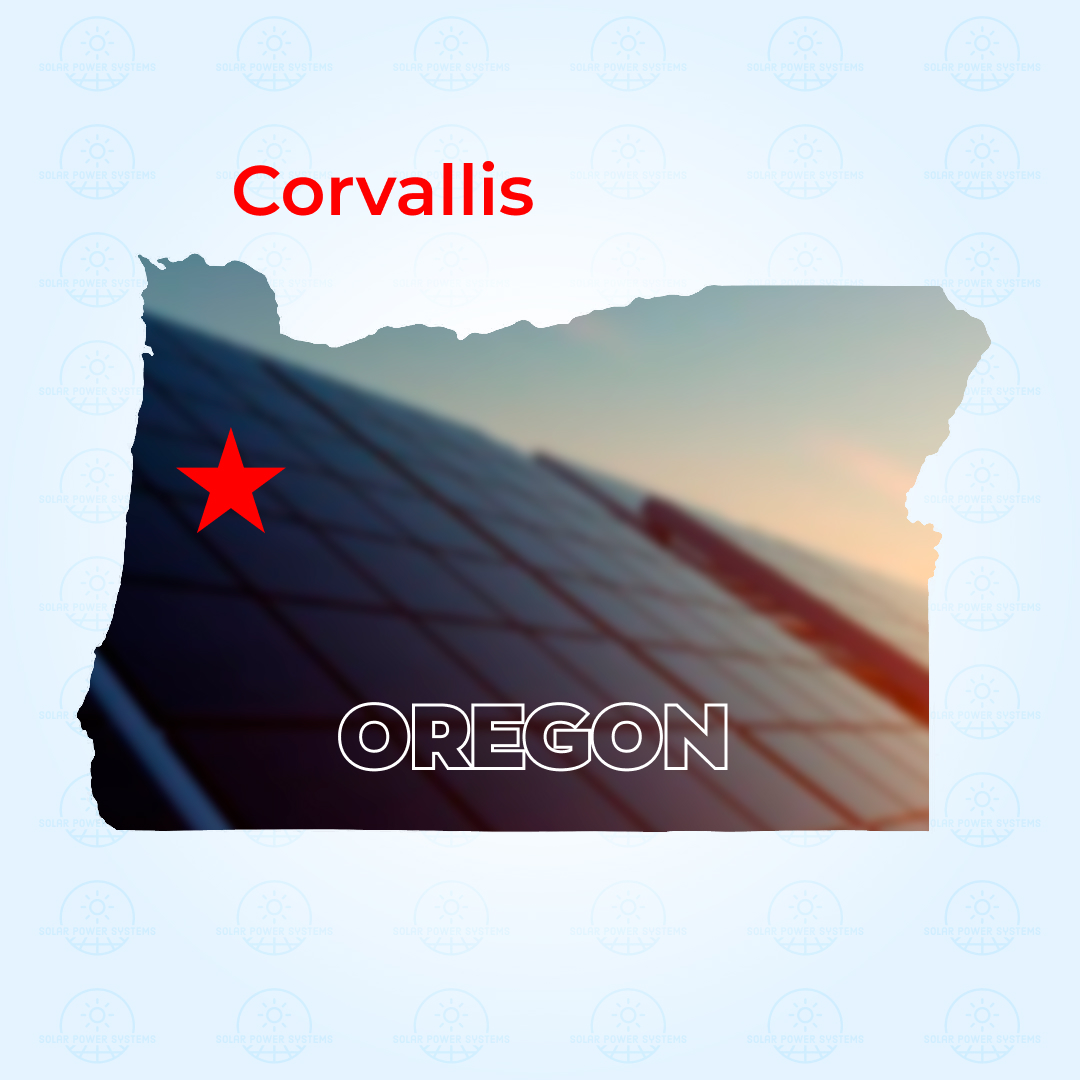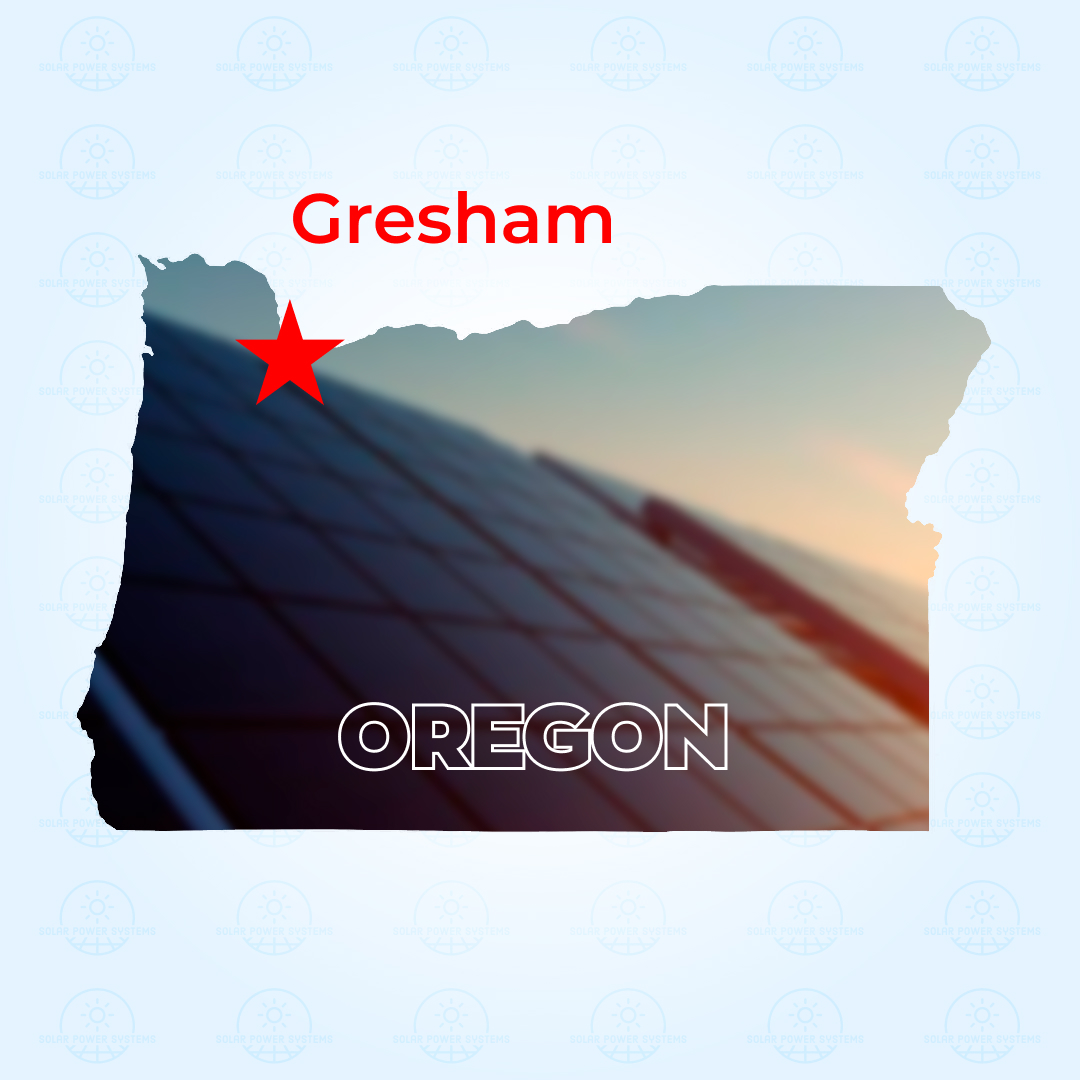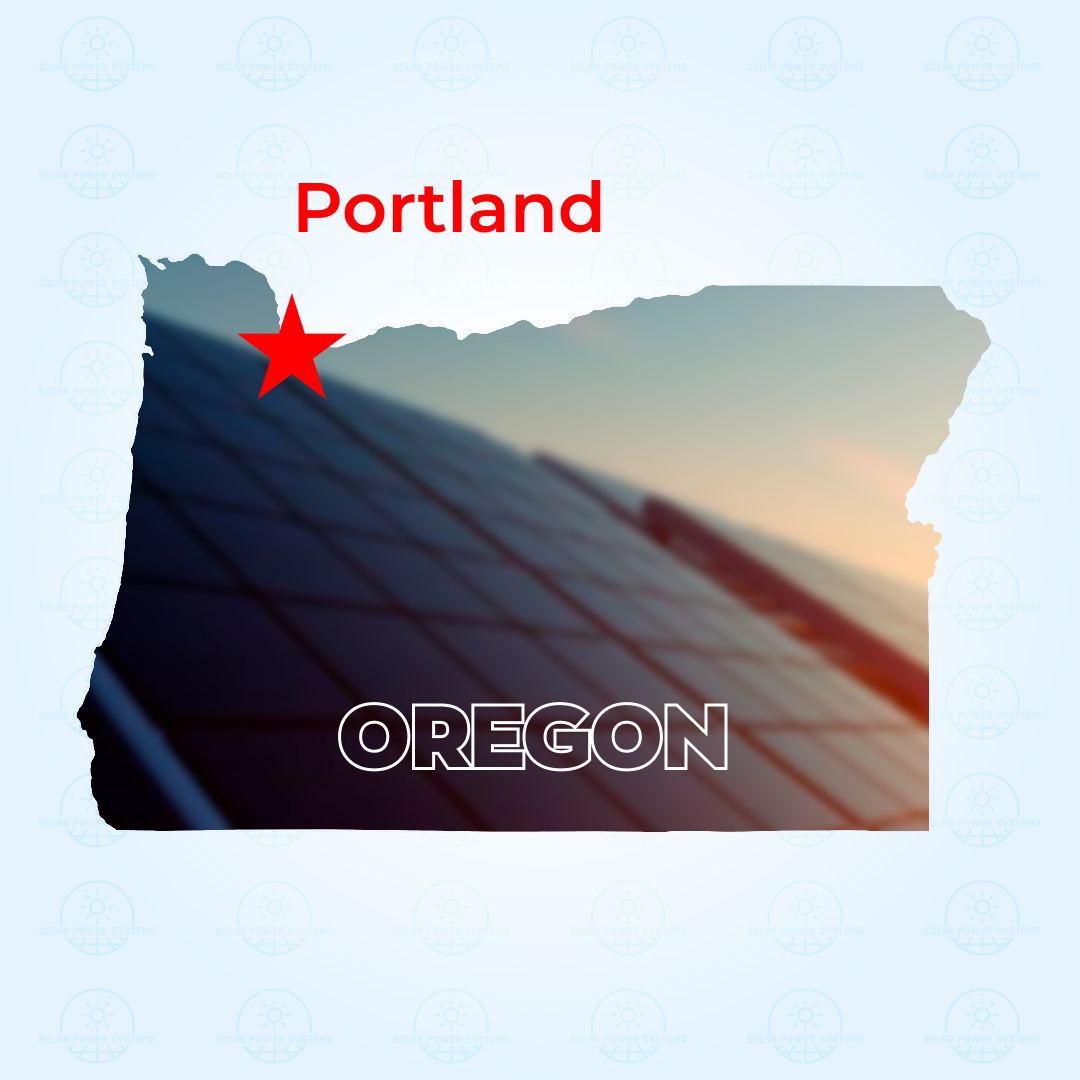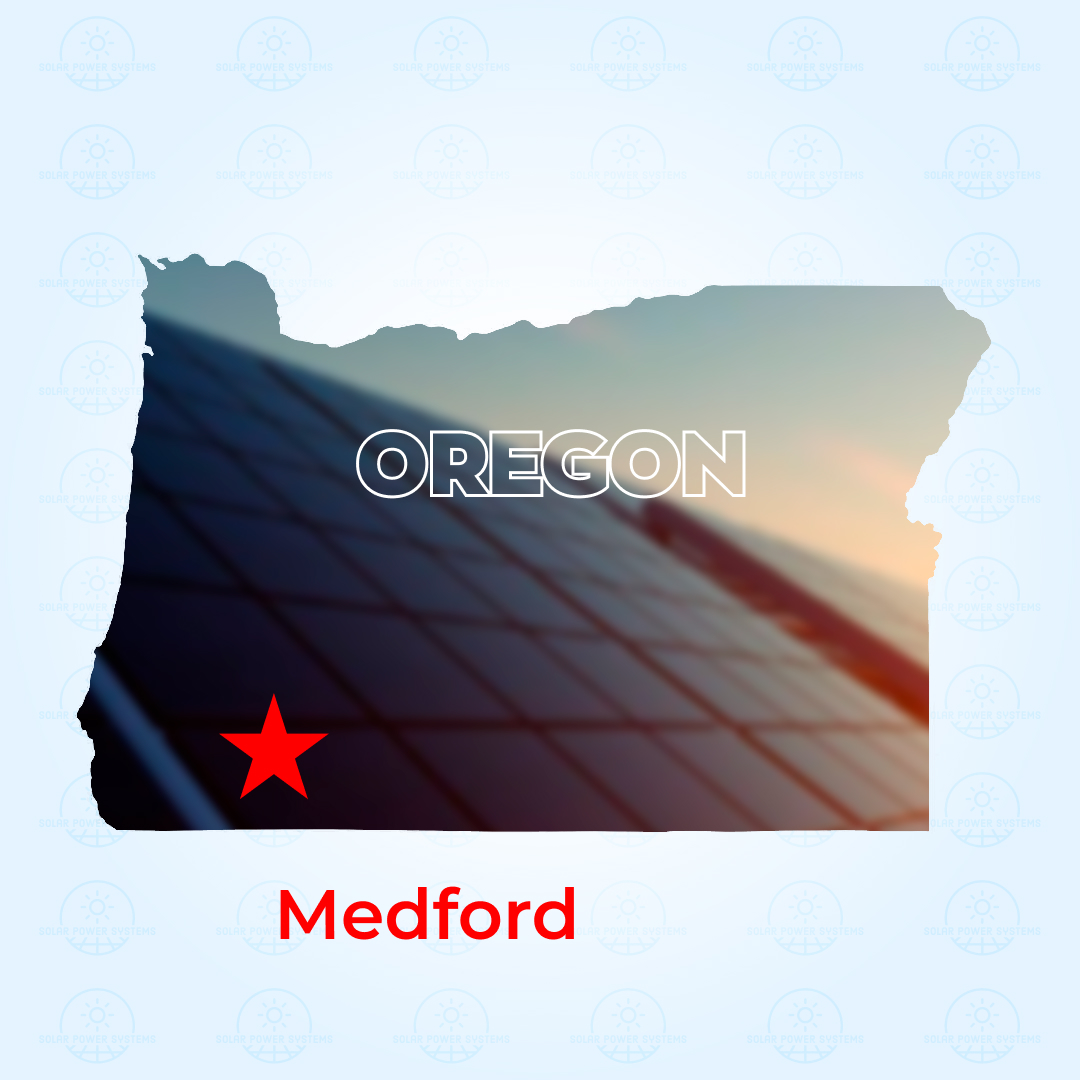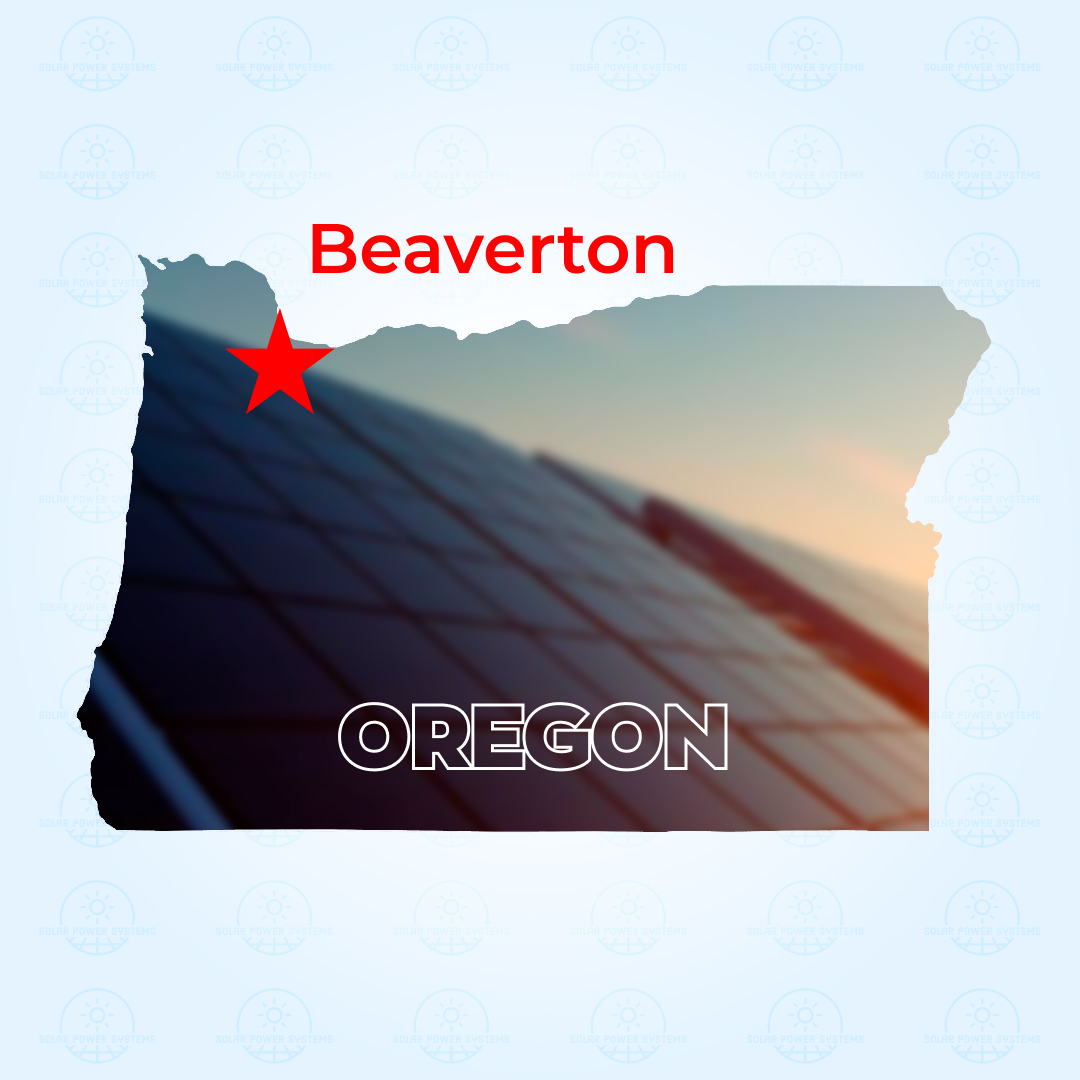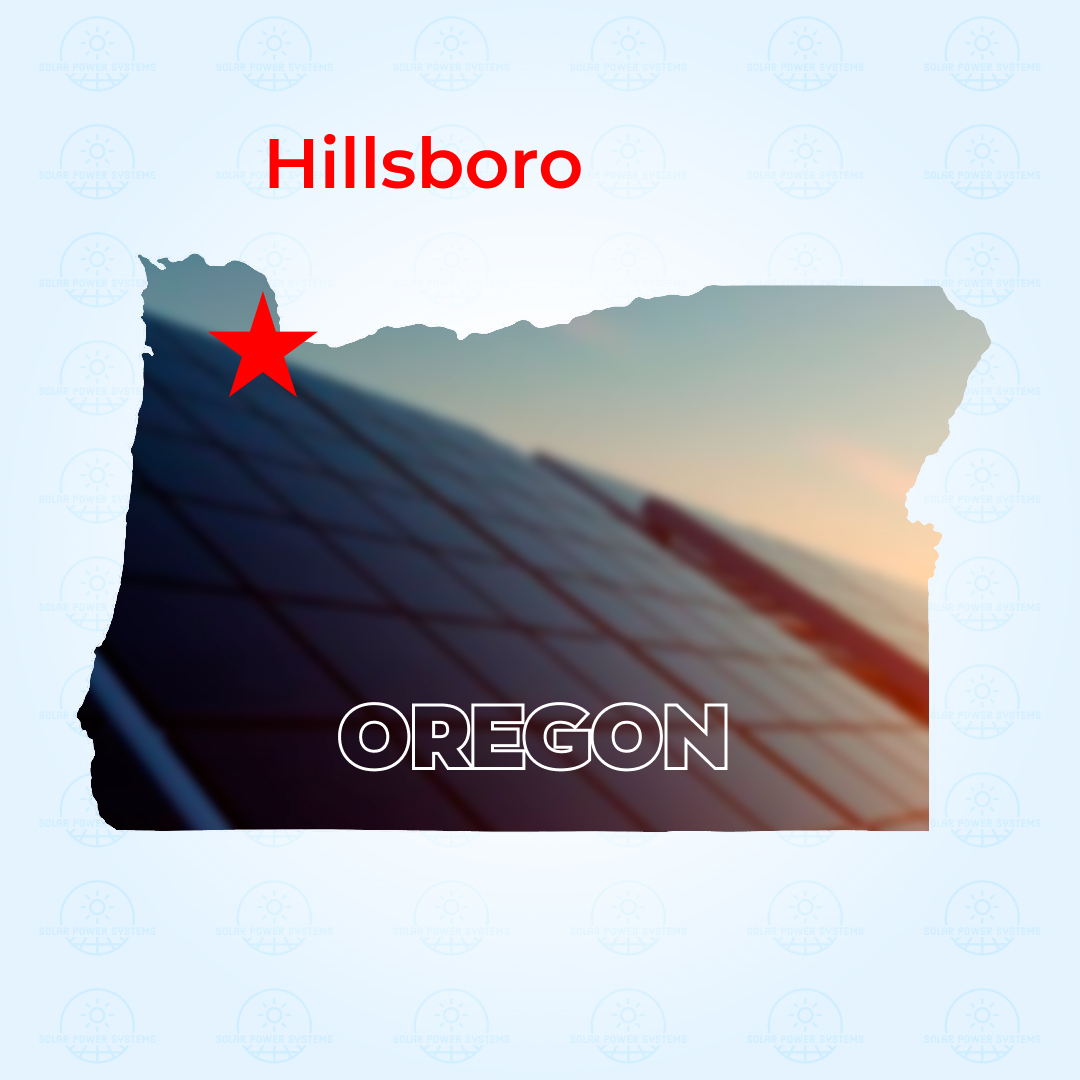Choosing the right solar installer in Oregon can feel overwhelming. There are so many questions to answer before making the decision, you can spend hours researching. That’s why we’ve simplified it for you.
Our guide highlights Oregon’s top-rated solar companies, combining Solar Power Systems expert insights with feedback from locals who’ve made the switch.
No need to surf the web looking for information crumbs to have the big picture. Years in business, reviews from real customers, online reputation, panel brands, warranty, social media overview, and more – we have it all. The hard work is done to help you make the right decision.
We prioritize companies committed to long-term service and reliability. Here’s our list of Oregon’s most trusted solar installers:
Intermountain Wind and Solar review 2020 NE Linnea Dr, Bend OR, 97701
Sunlight Solar Energy review 50 SE Scott Street Building 13, Bend OR, 97702
Sunlight Solar is rewarded with our Expert Choice badge, serving an exclusive area of fewer than 4 states. With a read more…
Sunlight Solar Energy review 150 NE Hawthorne Ave #200 Bend, OR 97701
Sunlight Solar is rewarded with our Expert Choice badge, serving an exclusive area of fewer than 4 states. With a read more…
E2 Solar, Inc. review 20784 NE High Desert Ln, Bend OR, 97701
E2 Solar, Inc. is rewarded with our Expert Choice badge, serving an exclusive area of fewer than 1 state. With read more…
Purelight Power review 2447 NE 4th St, Bend OR, 97701
With an overall third-party rating of 4+ and positive feedback across more than 10 reviews from different platforms, Purelight Power read more…
E2 Solar, Inc. review 63056 Lower Meadow Drive Suite 180, Bend OR, 97701
E2 Solar, Inc. is rewarded with our Expert Choice badge, serving an exclusive area of fewer than 1 state. With read more…
A&R Solar review 1001 SW Emkay Dr, Bend OR, 97702
A&R Solar is rewarded with our Expert Choice badge, serving an exclusive area of fewer than 2 states. With a read more…
Elemental Energy review 320 SW Century Drive Suite 405-250, Bend OR, 97701
With an overall third-party rating of 4+ and positive feedback across more than 10 reviews from different platforms, Elemental Energy read more…
National Solar review 320 SW Century Drive #405-388, Bend OR, 97702
With an overall third-party rating of 4+ and positive feedback across more than 10 reviews from different platforms, National Solar read more…
Purelight Power review 2121 SW Deerhound Ave. Suite 111, Redmond OR, 97756
With an overall third-party rating of 4+ and positive feedback across more than 10 reviews from different platforms, Purelight Power read more…
National Solar review 2709 NW Crossing Dr, Bend, OR 97703
With an overall third-party rating of 4+ and positive feedback across more than 10 reviews from different platforms, National Solar read more…
AM Solar Inc review 3555 Marcola Rd, Springfield, OR 97477
With an overall third-party rating of 4+ and positive feedback across more than 10 reviews from different platforms, AM Solar read more…
Purelight Power review 1038 Main St, Klamath Falls OR, 97601
With an overall third-party rating of 4+ and positive feedback across more than 10 reviews from different platforms, Purelight Power read more…
Advanced Energy Systems review 65 Centennial Loop, Eugene, Oregon 97401, Eugene, Oregon, United States
With an overall third-party rating of 4+ and positive feedback across more than 10 reviews from different platforms, Advanced Energy read more…
Energy Design review 860 Conger Unit 12, Eugene, OR 97402, Eugene, Oregon, United States
With an overall third-party rating of 4+ and positive feedback across more than 10 reviews from different platforms, Energy Design read more…
Earthlight Technologies review 812 McClaine St, Silverton OR, 97381
Earthlight is rewarded with our Expert Choice badge, serving an exclusive area of fewer than 3 states. With a foundation read more…
Benton Electric review 34037 Excor Rd. SW, Albany, Oregon 97321, United States
Benton Electric is rewarded with our Expert Choice badge, serving an exclusive area of fewer than 1 state. With a read more…
Energy Solutions review 16070 S. Rifle Way, Oregon City, OR 97045
With an overall third-party rating of 4+ and positive feedback across more than 10 reviews from different platforms, Energy Solutions read more…
Pure Energy Group review 139 Ankeny Hill Rd SE, Jefferson, 97352, OR, US
With an overall third-party rating of 4+ and positive feedback across more than 10 reviews from different platforms, Pure Energy read more…
Purelight Power review 3895 Cascadia Canyon Ave SE, Salem OR, 97302
With an overall third-party rating of 4+ and positive feedback across more than 10 reviews from different platforms, Purelight Power read more…
How Much Do Solar Panels Cost in Oregon?
| System Size | System Cost | System Cost (after ITC) |
|---|---|---|
| 3 kW | $8,518 | $5,963 |
| 4 kW | $11,358 | $7,951 |
| 5 kW | $14,197 | $9,938 |
| 6 kW | $17,037 | $11,926 |
| 7 kW | $19,876 | $13,914 |
| 8 kW | $22,716 | $15,901 |
| 9 kW | $25,555 | $17,889 |
| 10 kW | $28,395 | $19,876 |
The average solar panel system costs $2.84/W, including installation in Oregon. For a 5 kW installation, this comes out to about $14,197 before incentives, though prices range from $12,067 to $16,327. After the federal tax credit, the average price drops by 30%.
While a 5 kW system will only cost you $14,197 in Oregon, doubling the system size effectively doubles the price, so you’ll pay about twice that for a 10 kW system. The higher the price tag, though, the more you’ll get back as a credit toward your federal tax bill.
Oregon Solar Incentives and Rebates
The best solar incentives and rebates available in Oregon:
- Oregon Solar + Storage Rebate Program: This program issues rebates for solar electric systems and paired solar and storage systems for residential customers and low-income service providers in Oregon. Rebates are issued to approved contractors, who pass the savings on to their customers. Here are the rebate amounts:
- Low- or moderate-income homeowners: $1.80 per watt (DC) of installed capacity, up to 60% of the net cost* or $5,000, whichever is less.
- Homeowners not considered low- or moderate-income who are also eligible for an electric utility incentive: $0.20 per watt (DC) of installed capacity, up to 40% of the net cost or $5,000, whichever is less.
- Homeowners not considered low- or moderate-income who are not eligible for an electric utility incentive: $0.50 per watt (DC) of installed capacity, up to 40% of the net cost or $5,000, whichever is less.
- Local Oregon Solar Incentives and Rebates: Even if you don’t reside within PGE’s or Pacific Power’s service area, you may still be eligible for other local Oregon solar incentives and rebates:
- The city of Ashland offers $0.50 per watt for homeowners who go solar, with a maximum rebate of $7,500.
- The Eugene Water and Electric Board offers a $0.40 per watt incentive.
- Salem Electric offers a $600 rebate for the first 3 kW of solar energy installed and $300 for each additional kW in your system.
- Columbia County PUD offers a flat $1000 rebate.
The net cost of a system is defined as the total of all eligible costs minus any incentive provided by an electric utility or by the Energy Trust of Oregon. Remember to reach out to an approved contractor to talk about your project as they can help identify other potential solar savings, such as a federal tax credit or an Energy Trust of Oregon incentive.
Is It Worth Going Solar in Oregon?
For most Oregon homeowners, installing solar panels will be an expensive endeavor that is well worth the investment.
Oregon ranks 21st in the country for solar installations, and residents pay less than the national average for electricity. By harnessing abundant sunlight, homeowners can enjoy significant savings on their electricity bills, contribute to a greener and more sustainable future, and potentially increase the value of their property. Remember, while solar panels are a great investment for most Oregonians, they may not be suitable for every home or budget.
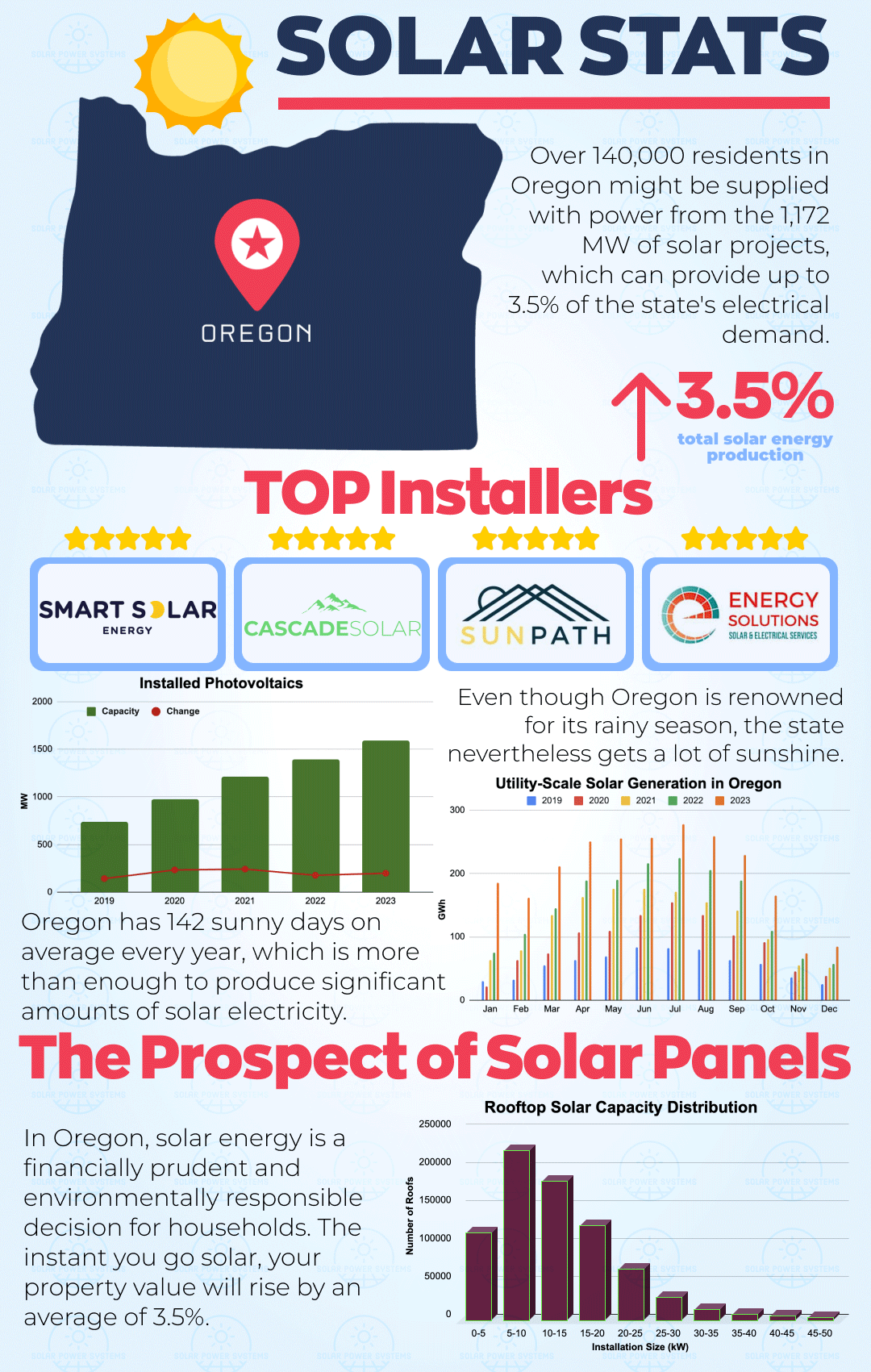
How Much Can Solar Panels Save Me in Oregon?
Finding out how much you can save on solar in Oregon is not a straightforward answer. It depends on several factors, including the solar billing of your utility company, the size of a potential solar system on your roof, and your household’s energy consumption. While most solar installers will try to cover all your electricity needs, the actual savings will depend on your home’s unique conditions. To get a personal estimate of how much you could potentially save by going solar, fill out a simple form on our website, use Google’s Project Sunroof solar savings calculator, or consult with a couple of local solar installation companies for a personalized savings calculation.
Solar Financing Explained
You can pay for solar panels in a couple of ways:
- Cash
- Installer solar loans
- Personal loans
- Cash-out refinance or HELOC
- Solar Leases or Power Purchase Agreements (PPA)
First, there is a cash purchase, which in most cases provides the best price and long-term savings, but the upfront payment is not always what you can afford. If you want to own your solar panels and don’t have about $15,000 to $20,000 in the bank, you’ll have to choose solar panel financing.
You can consider a personal loan, a home equity line of credit, or a solar loan offered by the solar company. However, keep in mind that these loans come with interest and additional fees. Solar loans often are tied to dealer fees, which can increase the total cost of your solar system by 20% or more in exchange for a lower interest rate. To ensure you get the best possible deal, it is wise to compare the dealer fees and interest rates offered by different installers. This way, you can make an informed decision based on the most favorable terms available.
Some companies offer solar leases or PPAs that require zero upfront cost. But in such case, you don’t own solar panels and you are not eligible for any solar rebates or the federal tax credit. And, because you have to pay the solar company monthly, your total solar savings will be lower. Ask for detailed savings calculations from a solar installer to decide on the best option. In most cases, you will still be paying less for electricity.
Frequently Asked Questions
How We Rank Solar Installers
Our main goal is to provide homeowners like you with top-rated solar companies you can trust. Our solar experts analyzed thousands of local and nationwide installers to get to the bottom of who is best in a specific location. The solar company ranking methodology is based on gathering input from homeowner surveys, consulting with industry experts, and extensive research into the solar energy market. Here are the things we believe are the most important to consider when choosing a solar company.
In short, here’s how we pick top installers:
– Company that has been in business for over five years as it indicates stability, reliability, and successful installations.
– Local solar companies over big national ones covering multiple areas as they can provide better personal attention and know more about the solar needs and regulations in their area.
– Companies with hands-on experience and a wealth of projects under their belt are more likely to deliver efficient and timely installations that cater to specific customer needs.
– Companies that handle their own installations instead of outsourcing to subcontractors ensure a higher caliber of work and nurture a culture of excellence and accountability in service.
– Select a company that has a good overall reputation and reviews on sites like SolarReviews, BBB, Google Maps, and Yelp.
– The company is licensed and insured and holds relevant certifications such as NABCEP certification.
– Companies that offer a wide selection of high-quality solar panels and related products and work with reputable brands.
– Companies that provide flexible financing options such as solar loans, leases, or power purchase agreements.
– Installers that provide substantial workmanship warranties and system performance guarantees.
Read more:
Our Methodology
What Made Us Choose Sources for Expert Score?
How We Classify Solar Installers: What Matters Most?
What to Look for In a Solar Company
To ensure that you partner with a great provider that can meet your needs of going solar, look for the following:
– Make sure the solar installer has industry-standard certifications, such as those from the North American Board of Certified Energy Practitioners (NABCEP), indicating that they meet the gold standard in renewable energy installations. Also, verify if they are licensed, bonded, and insured for residential solar projects in your area. If subcontractors are involved, check their credentials as well.
– Prioritize installers with a proven track record in solar installations, ideally with at least 5+ years of experience. Ask about the number of systems they’ve installed and their project portfolio. A competent installer should openly discuss the solar panels, inverters, and batteries they use if they help to take advantage of local solar incentives and rebates, and warranty coverage specifics.
– Your installer should be forthcoming about the installation process and answer any questions you might have, like “How many solar panels will I need? Why?”, “Can you give me a detailed cost breakdown based on my energy consumption?”, “What solar panel brands do you install? Why?”, etc.. They should also be transparent about their use of subcontractors, detailing their roles and how their work will be supervised.
– A preliminary evaluation of your roof’s condition is the groundwork. The installer should advise on necessary repairs to ensure it’s ready for solar panel installation and clarify responsibilities for any potential roof damage during the process. Discuss aesthetic concerns, such as the placement of solar panels around roof vents or the possibility of relocating vents for a more visually appealing setup.
– Check the installer’s reputation through online reviews and testimonials. They should be able to connect you with past customers who are willing to share their experiences. Personal recommendations from friends or neighbors who’ve gone solar can also be invaluable.
– Solar installation costs can vary widely, so obtaining multiple quotes is advisable. Experienced installers will adjust their offers to your home’s specifics—size, energy needs, etc. For an objective cost comparison, calculate the price per watt of the proposed system, giving you a standardized basis to evaluate different quotes.
Should You Choose a Local Solar Installer or a Big National Company?
Always choose a local solar company over a big national corporation. Small local companies that operate in a distinct local area are better than multi-state and national solar companies and large corporations. It’s the small local companies who get the best reviews on our website, and it’s the national multistate companies who get very poor reviews. Why so, you may ask?
Solar is a local service business, for the most part, and it is extremely difficult to run a solar company and offer good customer service to many locations from a central office.
Local ones have a community connection, they know the incentives and regulations in the area better, and they simply care more about you than large businesses trying to get into your pocket and overprice you. While multi-state solar companies might try to convince you by financial stability and “quality of installations across different locations”, try to choose a local company that meets all your criteria.
What Does a Solar Installation Look Like?
Here’s how a solar system installation will look like once the design for your solar system is approved:
– First, a solar installer should estimate your energy needs, and analyze your annual and monthly electricity consumption, which you can find on utility bills measured in kilowatt-hours (kWh). Such calculations will help to understand potential savings, payback period, and the system size you need.
– A home energy audit is something every experienced solar company would do to understand the size and output needed.
– Next question on the list: are your house’s roof conditions good enough for installation? A solar installer should carefully inspect the roof and ensure its conditions and orientation are good to go, how and where to better place solar panels and wire the system.
– Next, they will design the system and show you how it’s going to look.
You will usually need a permit to install solar panels from your local authorities, and the solar provider should handle all the paperwork.
– The entire process might take up to 3 months depending on the state and local regulations, while the system installation is usually up to 3 days (might take longer depending on roof conditions and system complexity).
– The installation crew should always clean up and remove any debris, leaving your house in good condition.
– When the system is installed, it should be checked and approved by local municipality inspection.
– If you’re connecting your system to the grid, it has to be wired to your local utility system. You’ll apply for connection through your utility company, which will also want to inspect your system to ensure it’s following utility guidelines. Some installers may help you with this step, so always ask. Once you have all the permits, your system will be up and running, powering your home with solar.
Browse the Best Solar Installers in Nearby Locations

